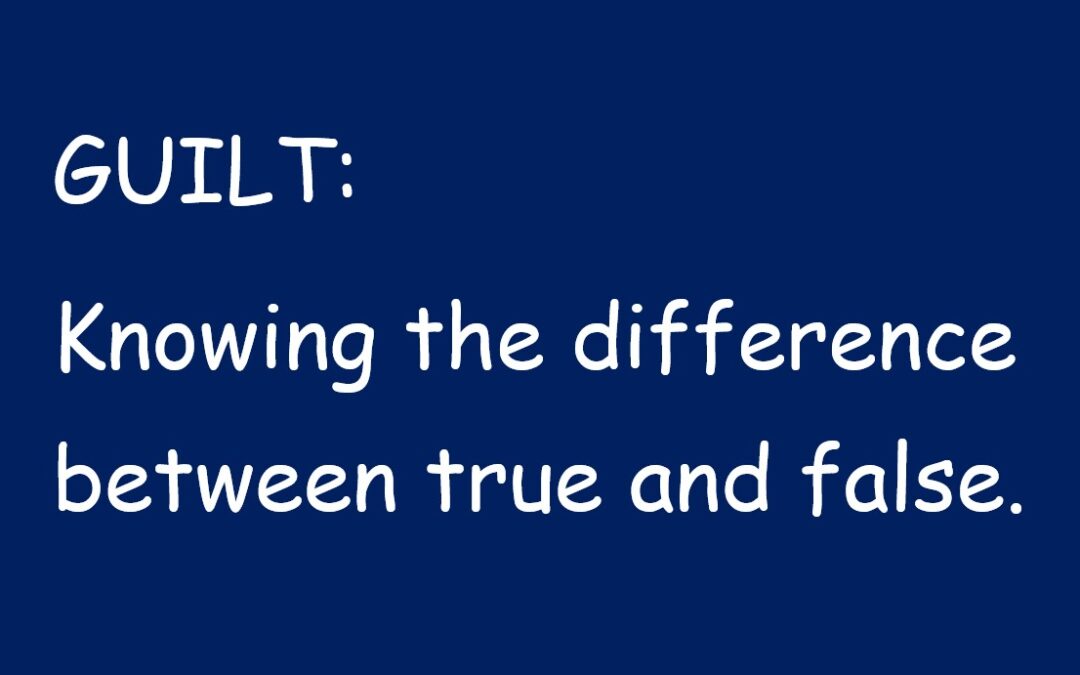

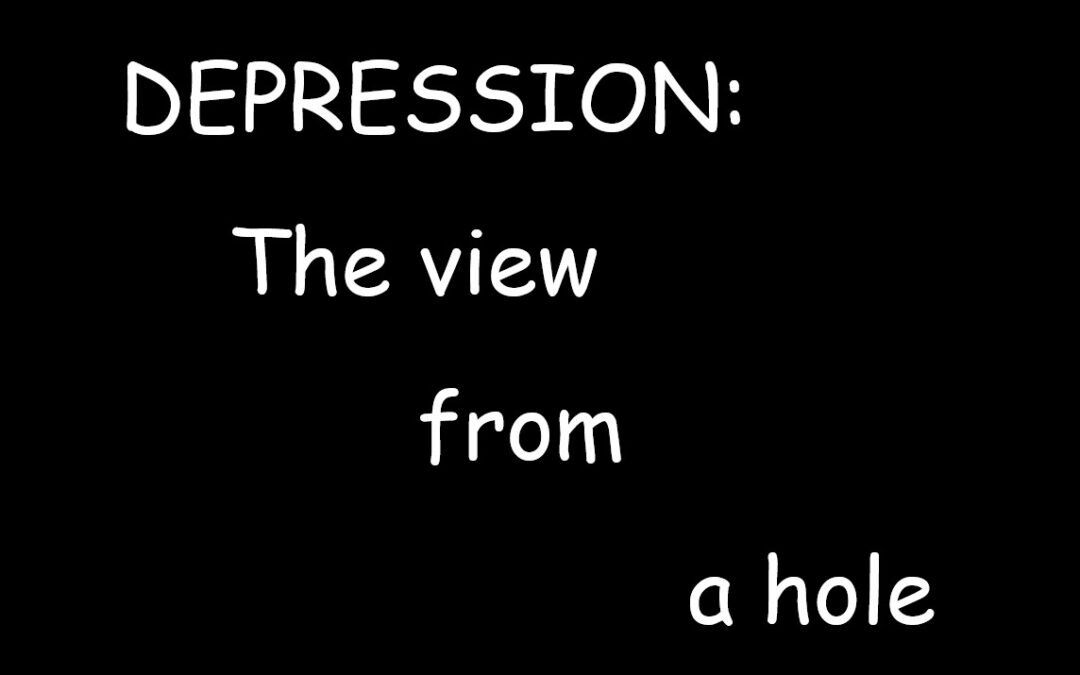
The Depressive “Hole”
Everyone knows what it’s like to feel depressed. Indeed, we commonly associate depression with sadness and tears, but there is so much more to this painful condition. DEPRESSION | Pastoral Counseling Syracuse NY (revmichaelheath.com)
When bad things happen to us, it is normal to feel depressed for a while. With time, most folks adjust and things return to normal. Others, however, get stuck and things don’t improve. Clinical depression is a condition that does not just go away.
Depressed moods don’t improve, in part, because depression is not just about how we feel. It’s also about how we perceive.
Depression distorts the way we see ourselves and our outlook on the world. A restricted view blocks our ability to see resources and options and, thus, the situation can look worse than it is.
Although it’s difficult to approximate what a depressed person experiences, the analogy of being in a deep hole comes close. Among other things, being in a hole makes it impossible to see anything but the hole. How depression and anxiety disorders affect our perception of reality (telepsychhealth.com)
Thus, depression prevents us from having a panoramic perspective on our life. Worse, when we are in it, we don’t realize that our perspective is limited. Fortunately, there are ways to become aware.
If things haven’t felt right for more than a couple of weeks and you just can’t shake that feeling, here are some tips to help you know if you’re in a depressive hole and, if needed, how to get out of it:

Thanksgiving & Stress
Thanksgiving is just around the corner and many families are busy with cooking or travel plans. Although this is a festive time of year, there are those for whom the season is difficult and filled with pain.
Sometimes the contrast between the Norman Rockwell painting and a person’s reality can be depressing. Indeed, having unrealistically high expectations may create unnecessary disappointment. https://newsnetwork.mayoclinic.org/discussion/housecall-10-tips-for-coping-with-holiday-stress/
Besides the hype there are all kinds of reasons that can cause problems. Physical or emotional illness, financial or work stress, marital conflicts, recent loss or loneliness are just a few of some of the challenges that can complicate holiday celebrations.
Likewise, when extended family members or friends gather, long standing feuds and political differences may be a source of strife. So, today I want to offer some tips that can reduce your stress and increase your joy for the holiday season, whatever the problem :
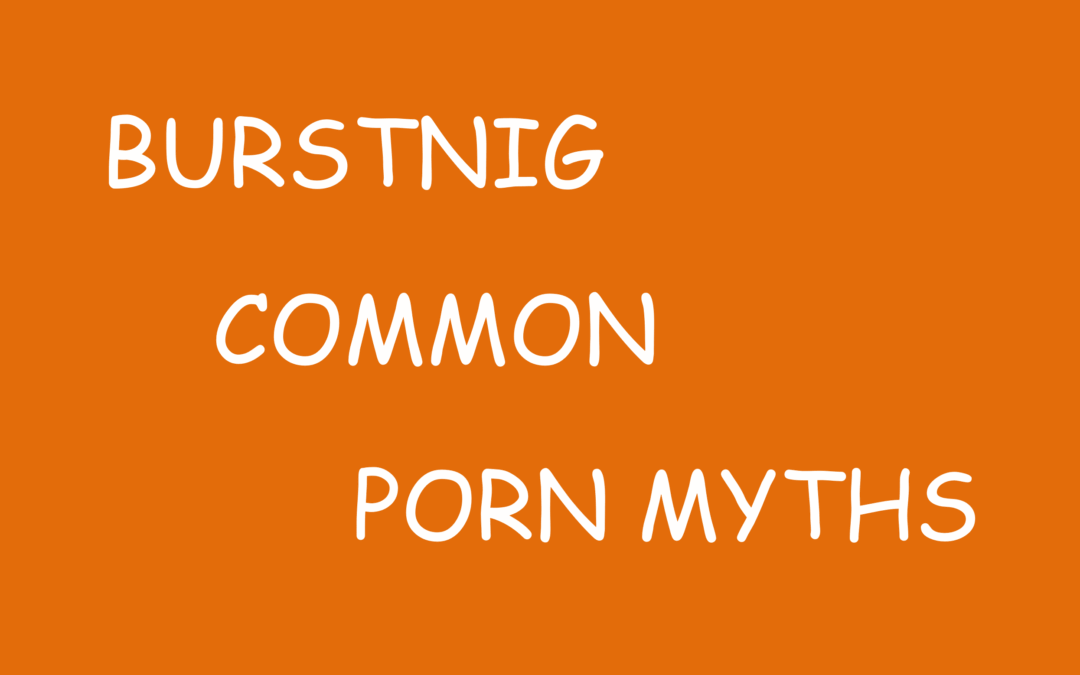
Common Porn Myths
Recently, I have noticed a significant up-tick in the numbers of clients contacting me who erroneously feared that they had a pornography addiction. After a careful examination, it was clear that, while they had been suffering from misinformation, they did not have an addiction.
It needs to be understood from the outset that even though “pornography addiction” is a popularly used term, I do not find it a help way to conceptualize the problem nor is it listed in the DSM5 as a disorder. Religious or moralistic discussions often denounce problematic masturbation and porn viewing as immoral or a lack of self-control without understanding of its psychological origins.
Although pornography is part of the problem with which these men struggle , it rarely was not the root. Prior childhood trama, religiously induced guilt and shame about sex and marital dischord are common underlying culprits.
The last time I wrote on this subject was four years agao. A Reasonable Approach for Discussing Masturbation and Pornography: Part 1 | Pastoral Counseling Syracuse NY (revmichaelheath.com) . Given that misunderstanding has not declinced, I wish to debunk some of the most common myths about pornography.
A recent article in Slate on-line provides an excellent segue for this discussion. What NoFap does to your brain: Why so many people who abstain from masturbation end up suicidal. (slate.com) Although it’s focus is on a particular anti-masturbation effort, NoFap, it provides a goosd summary of the major false notions about pornography.
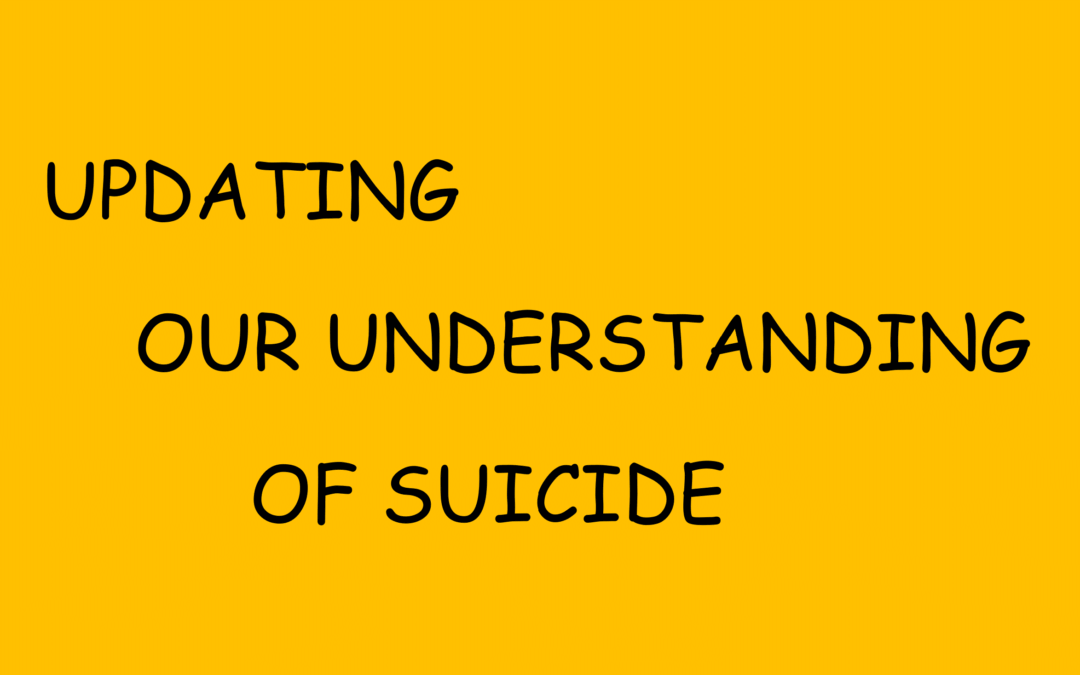
Suicide: An Update
A recent article in the Syracuse Post-Standard cited the alarming rise in teen-age suicides and homicides beginning with COVID-19 which has continued to the present. https://www.syracuse.com/us-news/2023/06/suicides-and-homicides-among-young-americans-jumped-early-in-pandemic-study-says.html
What is even more disturbing is the fact that suicide rates were already increasing before the pandemic. https://wjla.com/news/nation-world/more-than-a-mental-health-concern-nationwide-increase-in-suicides-prompts-newquestions?fbclid=IwAR1qWZbKn3G1ex_bv8XryK22NuohENbDSC2v87crC_YCcUBpyLoMM-BWEgI
Given other reports on our current mental health crisis, it’s probably a good time to update what we know about suicide.
HOW TO TALK ABOUT SUICIDE
To begin, an important change which has taken place in suicide discussions is the words that we use to talk about it. Instead of saying that someone committed suicide, a better way to express it is to say that the person died by suicide .
While this might seem like a trivial distinction, the change emphasizes the fact that, in most cases, suicide is not a free choice or conscious act. In addition, the traditional expression of committing suicide denotes needless stigma and shame.
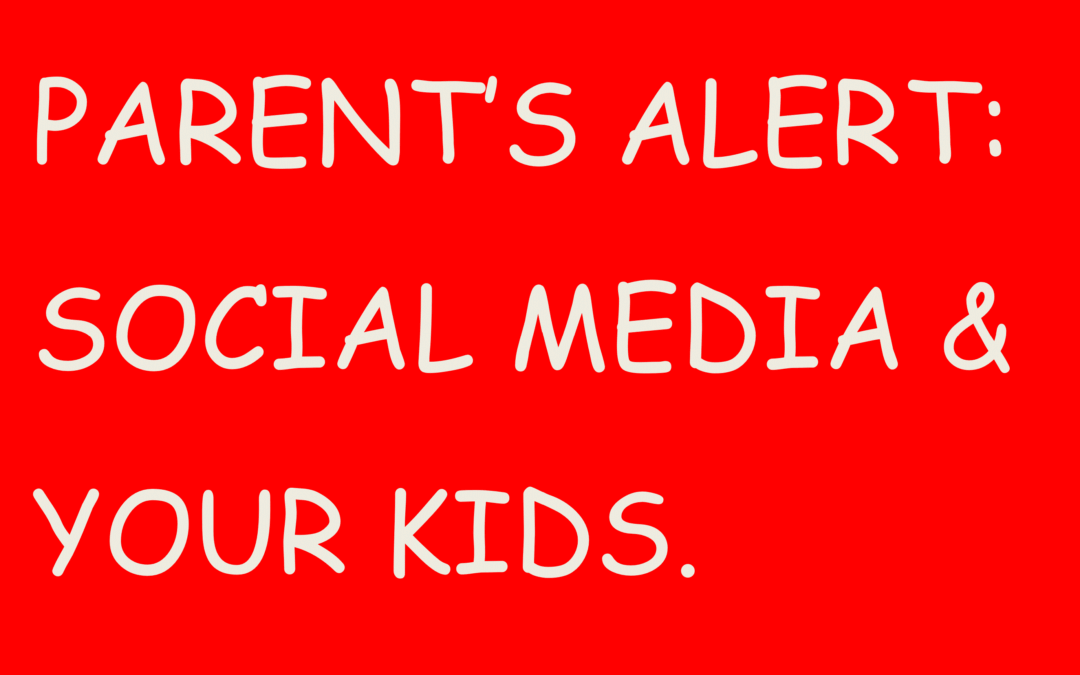
The SG on SM & Kids
Recently, you may have heard about the U.S. Surgeon General’s warning to parents about the possible harm that social media poses for children. Surgeon General: Why Social Media Harms Youth Mental Health | Time Today, I want to summarize and comment on his main concerns.
To begin, social media has a positive side. Studies have shown that platforms such as Instagram and Facebook provide children outlets for creative expression as well as for making positive social connections. Social media use can be positive for mental health and well-being | News | Harvard T.H. Chan School of Public Health
That said, the Surgeon General wants parents to know that, at this time, there are no conclusive studies which show that social media is safe or harmless for kids. Further, there are indications that, for some young adults and situations, social media can be harmful to a child’s mental health in several ways. Here is a summary of concerns along with some useful tips to help you cope with this omni-present technological reality.
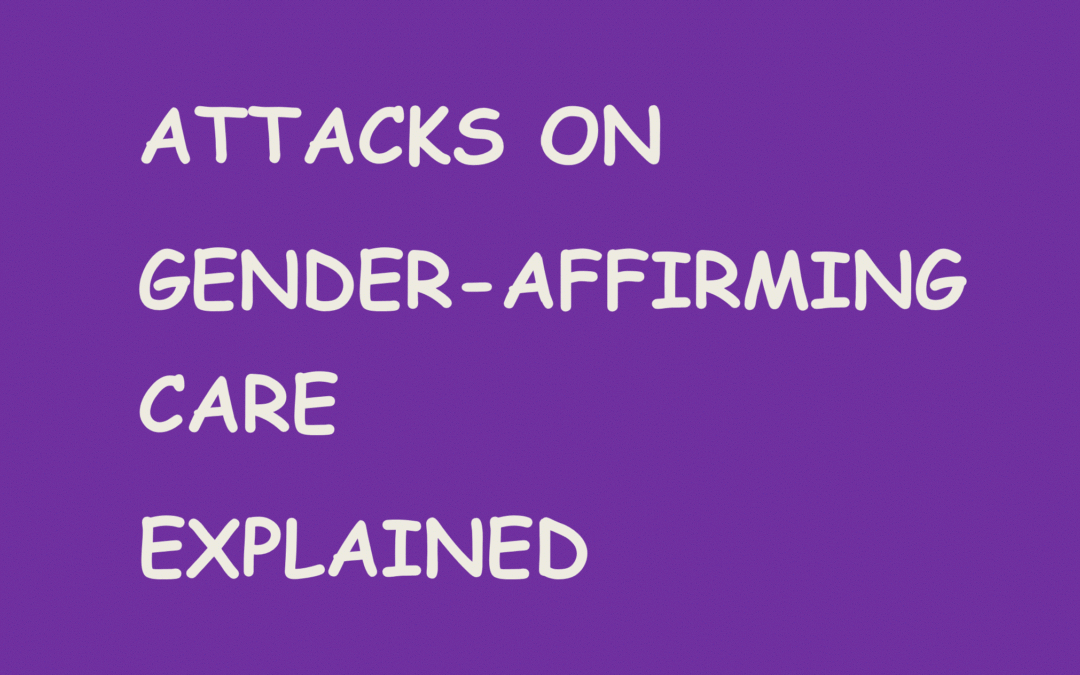
ATTACKS ON GAC EXPLAINED
May is mental health awareness month. This year I want to explain why some states are banning Gender Affirming Care (GAC) and expose the wolf-in-sheep’s-clothing scam called Gender Explorative Therapy (GET).
To be clear from the get-go, GAC is a legitimate treatment for gender dysphoric young folk . GET is a religiously backed hoax which ignores medical science and is harmful to transgendered non-conforming (TGNC) youth . https://www.nytimes.com/2022/06/15/magazine/gender-therapy.html
THE ISSUE Under the misleading banner of protecting children, a number of conservative state legislatures have chosen to pass laws which follow religious dogma rather than science.
Opponents of GAC want it banned because they believe gender dysphoric children, i.e. kids whose gender identity conflicts with the gender which was assigned at birth, is simply a transient emotional confusion and is not a real medical condition. Thus, they view the medical aspect of GAC such as puberty blocking drugs, as not only unnecessary but also harmful.
In fact, the effort to interfere with necessary medical treatment poses a real threat to the health and well being of gender dysphoric youngsters. https://wyofile.com/health-experts-gender-affirming-care-saves-lives/?gclid=Cj0KCQjwmN2iBhCrARIsAG_G2i4XSt60BiHr5nb8PATeCdfcS0gu92BPDRgRXpT9tqkIw9HnblP9xnAaAtPKEALw_wcB
(Here is a link which lists the large number of medical/ professional organizations which oppose both the laws banning GAC and GEC. https://transhealthproject.org/resources/medical-organization-statements)
Even worse, the number of states banning GAC is growing. Here is a map which shows states that are considering such legislation. https://abcnews.go.com/US/map-gender-affirming-care-targeted-us/story?id=97443087
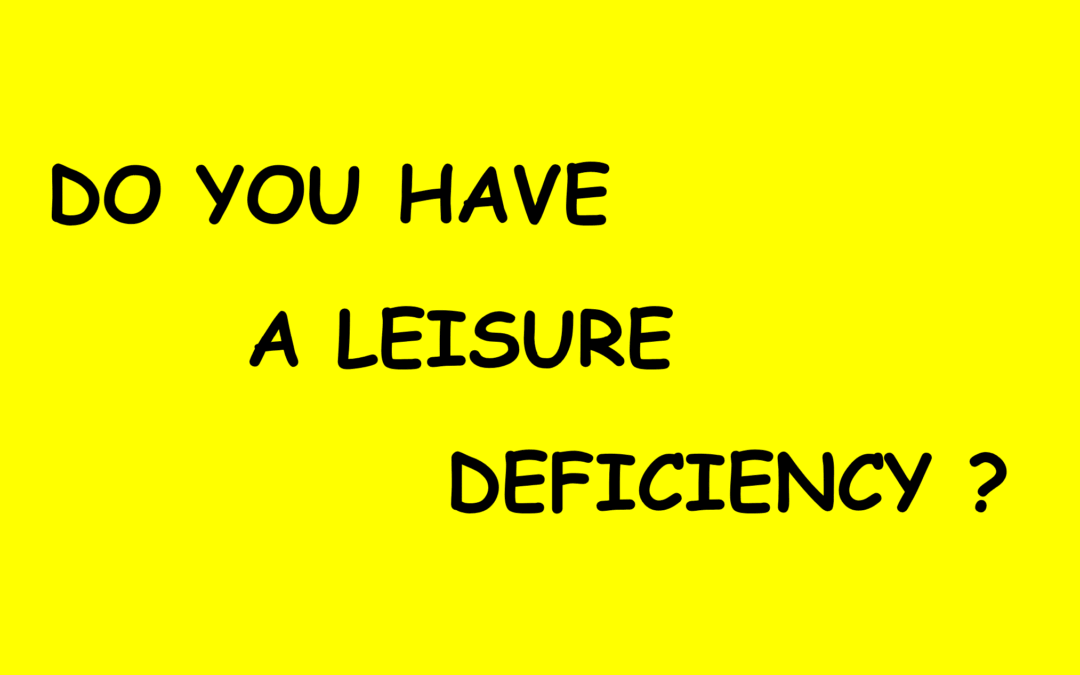
ABOUT LEISURE DEFICIENCY
Recent hospitalization and death statistics related to COVID-19 reveal that the pandemic’s medical threat has dramatically declined. Covid in the U.S.: Latest Maps, Case and Death Counts – The New York Times (nytimes.com) That said, other studies show that the pandemic, together with other factors, has had a devastating impact on America’s mental health. Rates of anxiety and depression have risen among all age groups and the number of people seeking counseling is sky-rocketing.
Experts believe that the cause of this problem is complex and actually pre-dates COVID-19. Such things as the internet and 24/7 on-line and cable news as well as the omni presence of smart phones and social media have over-loaded our ability to process so much distressing information. Have Smartphones Destroyed a Generation? – The Atlantic In other words, it’s not just the alarming content of things like mass shootings or war but the non-stop bombardment of the reports which have created a mental health crisis.
Another crucial element exacerbating the problem is America’s poor level of self-care and trivialized attitude toward leisure. Studies have shown that our nation’s traditional hard-work-no time-for play ethic has interfered with our society’s ability to cope with stress. Not giving ourselves sufficient time to recharge has caught many Americans with dead emotional batteries.
Despite various attempts to educate the public about the importance of self care, disdain for recreation persists. Evidence of this view is seen in Cadillac’s 2014 Super Bowl commercial. In it, a smarmy guy strolls around his pool extoling America’s superior work ethic over European’s who take so many vacations.
His message is that only by working hard can one afford to buy expensive cars. Ironically, studies have shown that people who push too much and recreate too little are less productive. Indeed, self-care is not a luxury or waste of time. Leisure is not only important for personal happiness and resilient mental health, it also is necessary for top performance.
In addition to being false, the hard work myth creates a psychological problem. The persistence in traditional attitude has caused many to develop a psychological condition that I would call Leisure Deficiency.
Fortunately, leisure deficiency is treatable. Thus, today, I want to discuss 1) How this false belief arose, 2) How to tell if you suffer from leisure deficiency and 3) Why leisure is important and 4) What can be done to incorporate leisure into your regular routine.
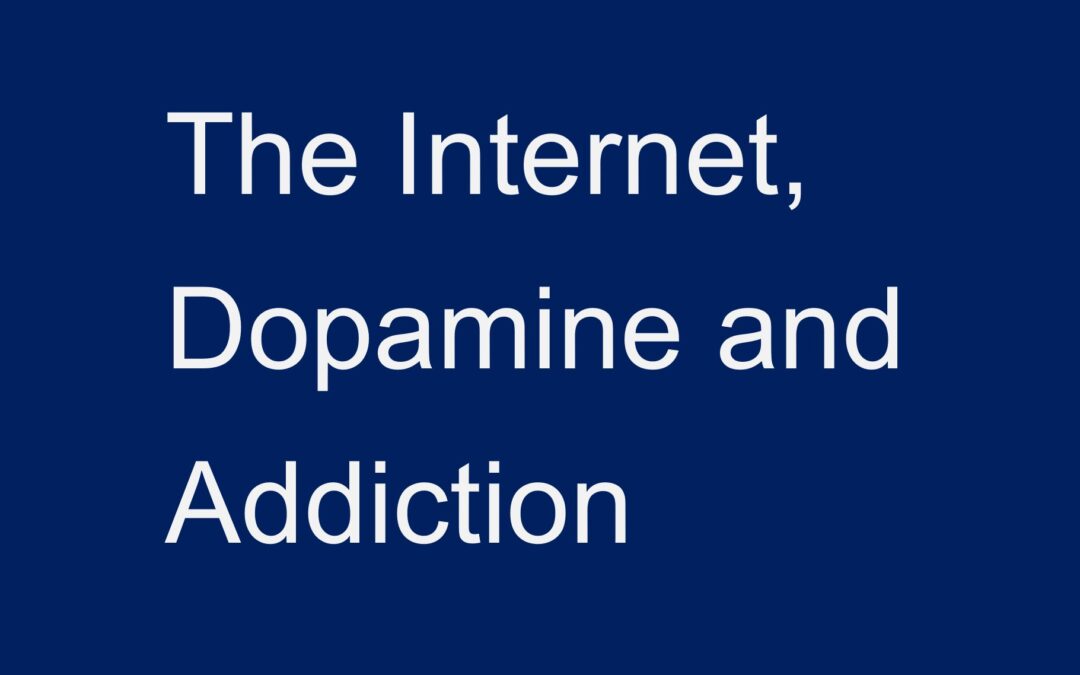
The Internet and Addiction
I recently wrote about how the advent of internet pornography had made raising children much more difficult for parents. ON PORN AND PARENTING | Pastoral Counseling Syracuse NY (revmichaelheath.com)
Today, I want to discuss how frequent internet activity triggers dopamine release in the brain and may lead to addiction. Specifically, I will explain how excessive time on a smart-phone use can hook its unsuspecting users .
Although addiction is an age-old problem, smart-phone technology presents a new risk . Research has confirmed the problem that parents and unhappy spouses have struggled with for years: How to get members of their family to put their phones down?
To better grasp the risk that smart phones pose for addiction we need to understand 1) Some basic neuro-chemistry. Particularly how dopamine creates addictive behaviors. 2) How folks can become addicted to their smart phones. 3) How to tell if someone is addicted to their phone. and 4) Successful treatment strategies for smart-phone addiction.
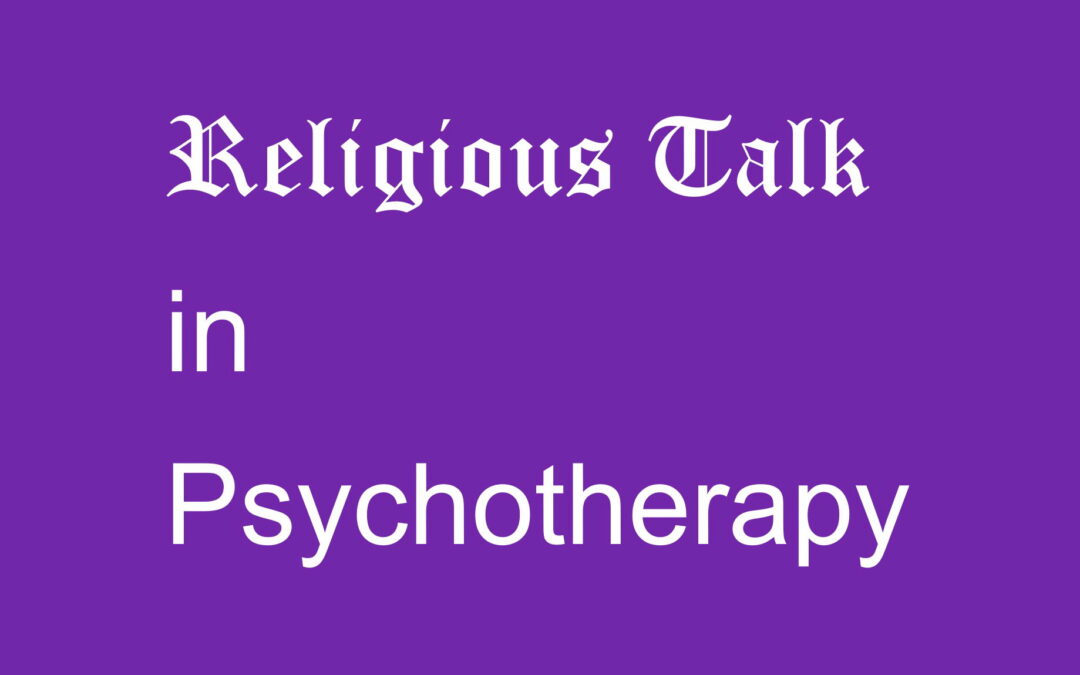
Religious Talk in Therapy
There was a very interesting article in the Washington Post recently about how more and more therapists were opening their counseling approach to include religious beliefs and concerns. More psychotherapists are incorporating religion into their practices – The Washington Post
As a pastoral counselor, I wish to applaud this development and make some observations that I have learned over the past forty-five years of practice. Pastoral Counseling ? | Pastoral Counseling Syracuse NY (revmichaelheath.com)
First off, it is important acknowledge and to understand why religious language has been a problem for some therapists in the past. Even though cultural sensitivity and inclusiveness has increased toward race, gender and sexuality, spirituality has been neglected. One reason stems from the fact that American culture is predominantly secular. For example, in contrast to the ancient Europe, Americans build sports stadia and skyscrapers, not cathedrals. Statistically, fewer people now worship than ever before in America (less than 50%).
Another contributing factor to psychotherapy’s awkwardness towards spirituality is psychology’s open hostility to religion. For example, Freud skeptically referred to it as “mass hysteria”.
Not surprisingly, therapists tend to be less religious than the general population. Many openly acknowledge feeling awkward when encountering clients who espouse a faith or employ religious language when explaining their concerns.
Psychology’s antipathy to religion is not a secret. Not surprisingly, many clients report feeling self-conscious about their faith and sometimes are reluctant to speak of their spiritual concerns in therapy for fear of appearing “religious”.
All of this notwithstanding, it is important that clients and therapists, alike, understand that neither needs to be uncomfortable when discussing matters of spiritual or religious content. It is my belief that much of the tension between psychology and religion stems from a fundamental confusion about their roles.